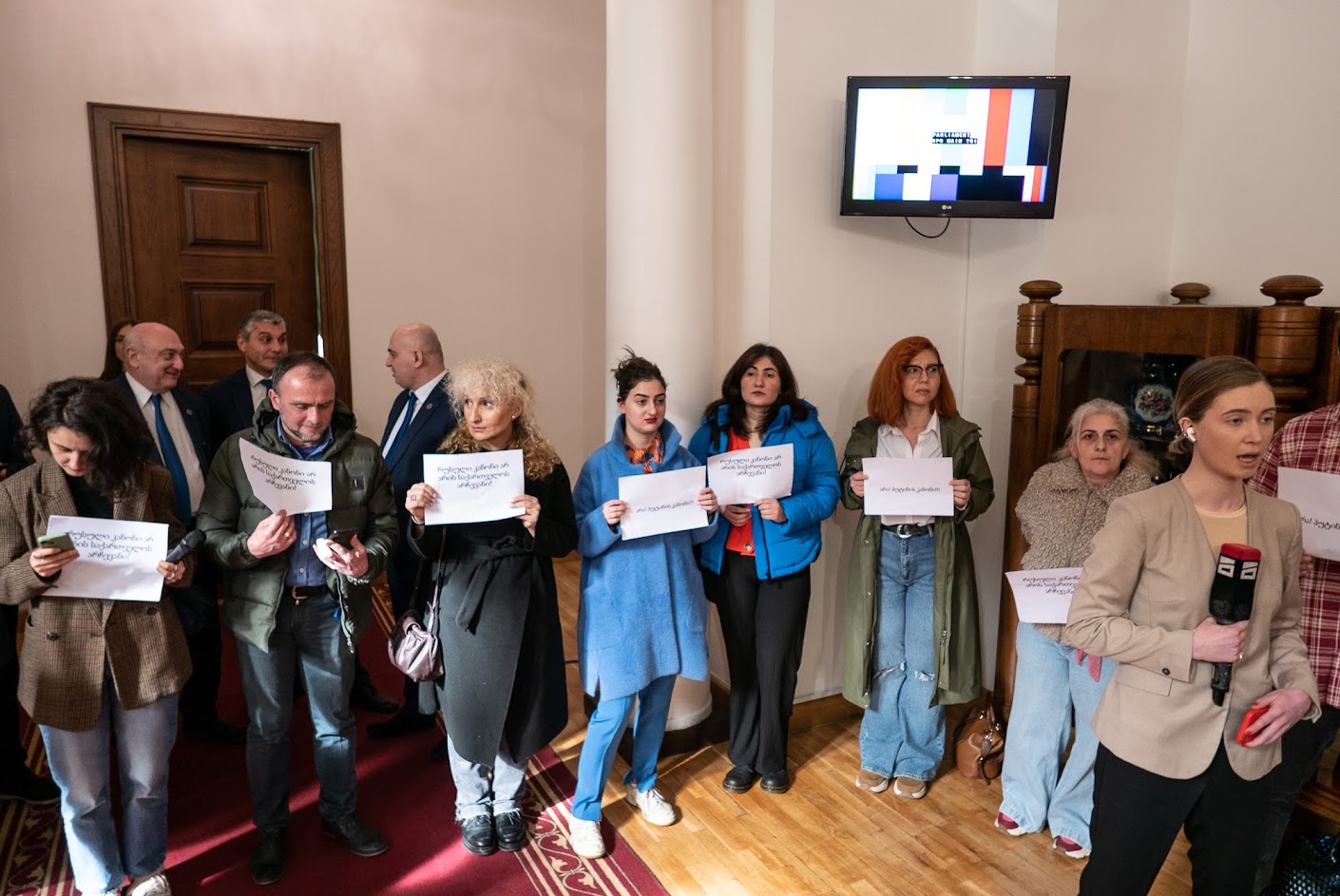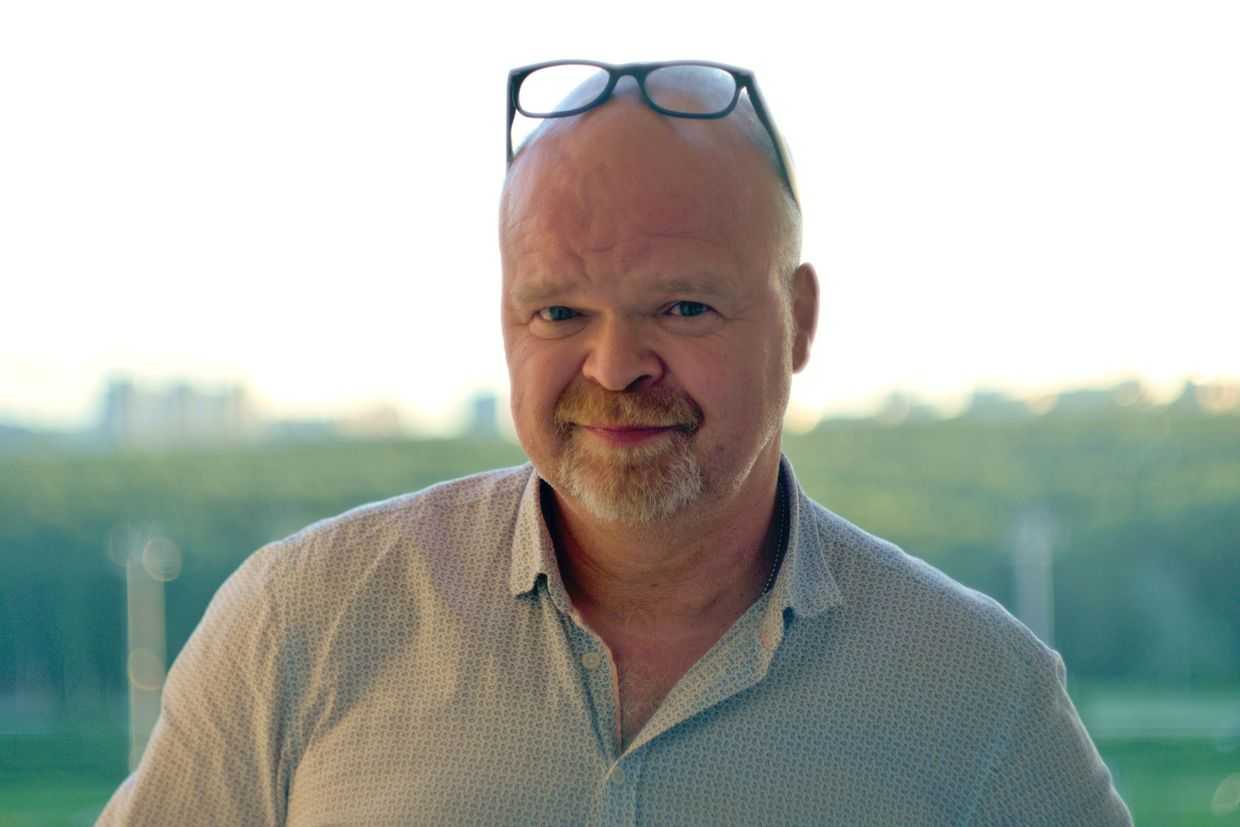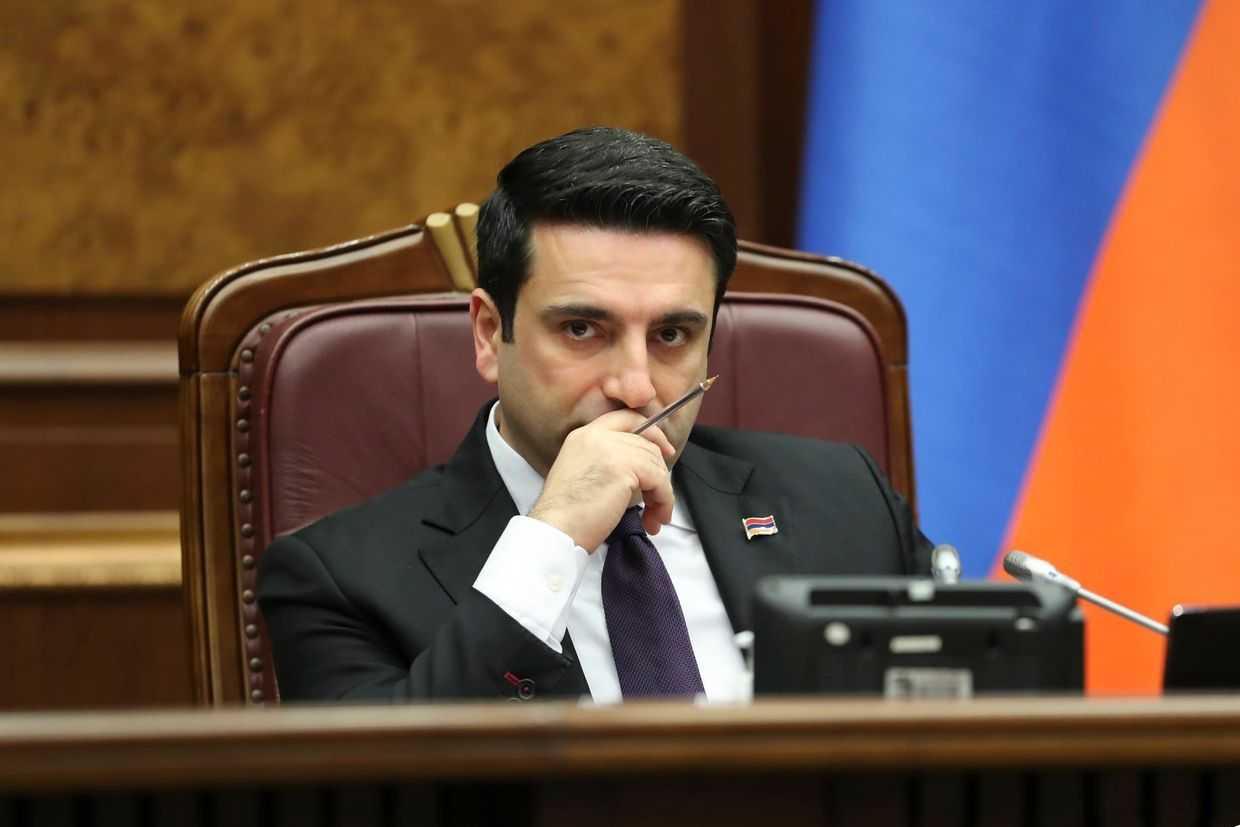
The Georgian Parliament has revoked the accreditation of three reporters and two camera operators from TV channels Mtavari, Pirveli, and Formula after they tried to get comments about ongoing scandals from parliamentary majority members.
The channels are leading opposition-leaning media groups that regularly cover Georgian politics and offer weekly investigative reports.
On Thursday, Nodar Meladze, head of the news division at TV channel Pirveli, condemned the parliament’s decision to bar reporter Rusudan Dumbadze and camera operator Irakli Murmanishvili from covering parliament for a month.
‘A member of the parliament has an obligation to answer a journalist’s question […] it is a duty of the media to ask questions’, Meladze stated. ‘The Georgian parliament uses new accreditation rules to repress journalists and obstruct journalistic activities.’
Meladze was referring to the ‘code of conduct’ for the media that the speaker, Shalva Papuashvili, introduced in March as part of updated rules for parliamentary media accreditation. The new rules oblige reporters to stop an interview if an MP, member of staff, or guest does not consent to it.
Media personnel whose accreditation was revoked can only be replaced by their respective outlet once the suspension ends.
[Read more on OC Media: New accreditation rules threaten to ban media outlets from parliament]
The news chief of Pirveli said that their crew were subjected to ‘discrimination’ for asking Georgian Dream MP and Culture Committee chair Eliso Bolkvadze about the US sanctions imposed on several judges.
[Read more on OC Media: US sanctions senior Georgian judges for ‘undermining rule of law’]
Later that day, Papuashvili denied the suspensions were related to the journalists’ coverage, instead attributing the ban to their ‘harassment’ of MPs.
‘A tool to exert pressure’
The Georgian Media Advocacy Coalition harshly condemned the suspensions. In a statement on Friday, they reiterated their disapproval of the ‘code of conduct’, which they said was introduced without considering the ‘legitimate interests’ of Georgian media.
The new rules, the Media Coalition insisted, ‘are dangerous to journalists and may be used as a tool […] to exert pressure on editorial policies’.
On Friday, Georgian Public Defender Levan Ioseliani described the new rules as ‘problematic’ and called on Papuashvili to amend them so that they ‘wouldn’t allow unjustified interference’ in the work of journalists.
Also on Friday, opposition MP Khatia Dekanoidze condemned the latest revocations and called on the speaker to revoke the new rules.
Papuashvili’s ‘code of conduct’ was first used in early March to suspend a Tabula reporter and three Publika journalists from covering parliament as its committees discussed the controversial foreign agent draft law.

The speaker has also repeatedly limited access to the building for both guests as well as journalists citing safety concerns, a measure routinely used before and after the introduction of the new ‘code of conduct’.
‘It’s a journalist’s job to get answers’
Mtavari’s journalist Tatia Tsotsonava and camera operator Zuka Chkhvirkia were also among those suspended on Thursday, after attempting to get comments from majority MPs about the US sanctions on senior Georgian judges.
Tsotsonava told OC Media they were trying to get a comment from the lawmakers on an issue that was of high public interest.
‘We only wanted to know if [MP Eliso Bolkvadze] felt responsible for supporting the laws that strengthened the “clan” [of influential judges] that got sanctioned’, Tsotsonava said. ‘It’s a journalist’s job to get answers, and we, within ethical norms, tried to get her answer.’
Tsotsonava denied any harassment of Bolkvadze. ‘She was standing at the elevator and we asked questions. We did not chase after her on the stairs or anything like that.’
‘I have no intention of changing tactics, because I don’t think I’m doing anything wrong or unethical’, she added.
Formula reporter Sopo Gozalishvili also had her accreditation suspended for a month, after asking MPs about their position on the allegations of sexual harassment against Shalva Ramishvili, a pro-government pundit and the co-owner of the similarly aligned POSTV.
Gozalishvili told OC Media she had tried to find out if Georgian Dream MPs Nino Tsilosani and Greta Tsitsava stood in solidarity with Ramishvili’s alleged victims, but said they only became irritated by her inquiries.
Gozalishvili added that parliament had effectively barred Formula from covering it for a month, as she cannot be replaced.
Like Tsotsonava, she insisted she ‘wouldn’t promise lawmakers to stop attempting to get their answers’, even if she risked being barred for six months for a repeat offence.
‘Obviously, this is another attempt to strangle critical media’, said Gozalishvili. ‘I guess they’ll end up surrounded by their own propaganda media and ensure a comfortable environment for themselves in the end.’







